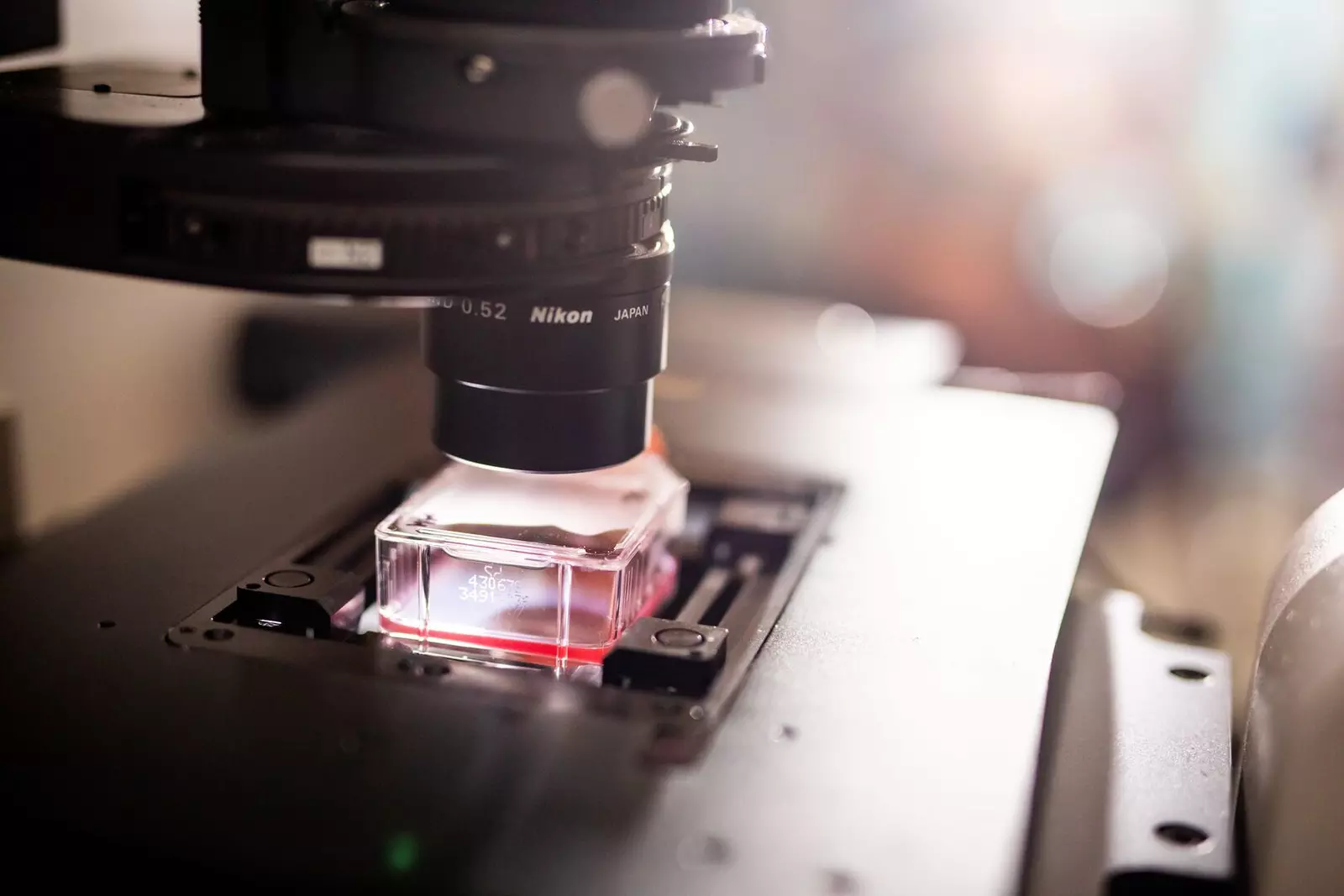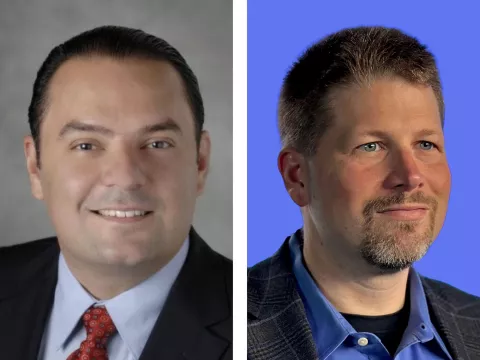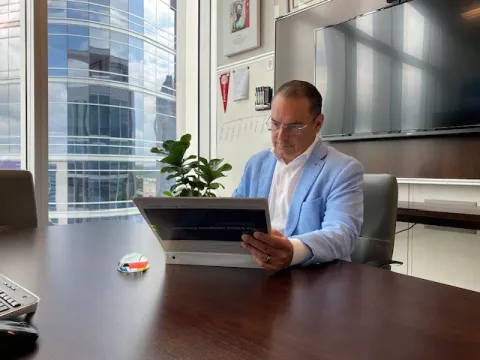- Beth Kassab

When SpaceX’s Falcon 9 launched Thursday evening, July 14, the rocket carried with it muscle cells from Central Floridians to the International Space Station.
The cargo is an experiment run by a team of scientists from the University of Florida and AdventHealth to examine how microgravity changes muscle cells. The findings could one day prove helpful to astronauts who spend long periods in space or – for those of us who are Earthbound – potentially translate to new ways to prevent or reverse weakness developed by patients confined to bed or with limited mobility.
“This is a really exciting time for us,” said Paul Coen, PhD, an associate investigator at AdventHealth’s Translational Research Institute. “The tissue chips are like miniature labs that will allow us to study how microgravity not only negatively impacts muscle biology but will also give us the opportunity to test therapeutic countermeasures.”

Muscles atrophy and weaken when a patient is unable to move, and Dr. Coen, who studies how aging impacts muscle loss, is looking for clues to help people remain stronger for longer periods of time. The cells headed to ISS are divided into two groups – those collected from young and older adults. Scientists want to understand how microgravity might impact muscle from older adults differently from younger adults.
The shoebox-size LabCube that contains the muscle tissue chips will then be frozen and preserved before it returns to Earth later in the year. The tissue chips will travel to the University of Florida, where Siobhan Malany, MD, the lead investigator and a professor in the College of Pharmacy, will run a number of tests to determine the impact of microgravity on the cells.
This is the second launch of human muscle cells collected at AdventHealth into space after the first batch took off in 2018. New this time: electrical stimulation built into the tissue chips so that researchers can simulate the muscle cells contracting aboard ISS. The goal is to understand how contraction might protect the cells from microgravity.
A separate, but scientifically related, National Institutes of Health-funded study led by Dr. Coen is also underway at AdventHealth Translational Research Institute. He is asking participants to spend 10 days on bedrest at TRI’s Clinical Research Unit and is comparing muscle mass, fitness and other health variables before, during and after the 10-day period. People taking part in the study can’t get up and walk around, but they can read, scroll their phones or watch TV or movies.
“The bedrooms at our clinical research unit are nicely furnished and are really comfortable,” Coen said. “Generally, our participants have a pretty good time during their 10-day stay with us.”
People interested in participating in the study can find more information here.
The results from both the space and bedrest research might one day help people recover faster after long hospital stays or, perhaps one day, combat natural muscle changes brought on by aging.
Recent News
AdventHealth has achieved the top spot on the Gartner Healthcare Supply Chain Top 25 for 2024.
Prayer, medicine and faith help Josiah Stubbs through many miracles,
including an initial 14-hour surgery
Prayer, medicine and faith help Josiah Stubbs through many miracles,
including an initial 14-hour surgery
Rajesh Shah, MD, an interventional cardiologist, shares that statin therapy is a mainstay in the treatment of cardiac and vascular disease.
A new way of treating bladder cancer is revolutionizing the field. AdventHealth Cancer Institute is the only site in Florida and first in the U.S. to open this treatment via a trial.
Kirsten James never thought she’d be at risk for cancer. Working out six days a week and following a strict diet, she was the picture of health.
Four cancer survivors and their doctors reveal how overlooked symptoms led to serious cancer diagnoses.
AdventHealth physician who conducted research as part of the study says it could lead to more treatment options for kidney patients and others.
The AdventHealth East Florida Division was recognized by Modern Healthcare as one of the Innovators for 2024 for its efforts in addressing nursing challenges.
AdventHealth has been invited to play a pivotal role in advancing responsible AI within the health care industry.
AdventHealth is using AI in more than 40 different ways, each one of which has been reviewed and approved by an advisory board.
AdventHealth, Mass General Brigham, Mayo Clinic, Medical University of South Carolina and UPMC will leverage Quanterix technology and tests to streamline care for Alzheimer’s patients.











